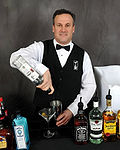This article has multiple issues. Please help improve it or discuss these issues on the talk page . (Learn how and when to remove these messages)
|
A gay day or gay night is a scheduled time at an establishment dedicated to attracting and catering to the gay community. They are typically held at amusement parks and other tourist attractions.
